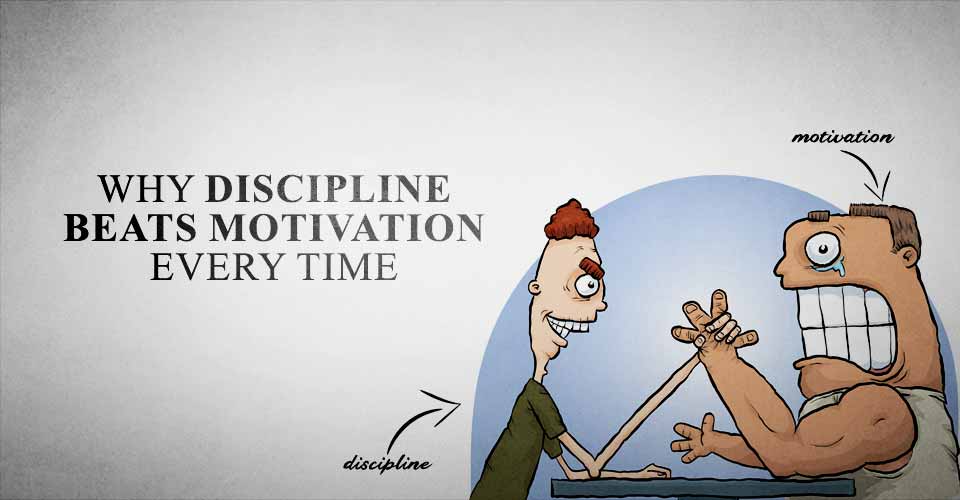How many times have you sat in front of your computer, staring down your workload, wishing you had some more motivation? If you’re like me, this has happened hundreds of times. However, it’s recently come to my attention that I’ve been waiting for the wrong thing.
Motivation sounds great. It’s an internal fire that gets us moving and often leads to brilliant results.
Motivation is, in theory, a wonderful thing. It’s almost magical.
There is one problem with it though.
Motivation is not reliable.
Motivation operates on the assumption that we need to feel a certain way if we want to accomplish great things.
We believe that, if we don’t feel motivated, we simply can not complete a task to the best of our ability – so we don’t even try. We may attempt to motivate ourselves by drinking coffee, looking at vision boards, or speaking with a mentor. Ultimately, though, that inspiration might just refuse to come. The spark may never light itself, no matter how sweetly we ask.
The obvious solution is to light it ourselves – but how? The answer is not a popular one, but it is a crucial component of every successful person’s ability to get things done. If we want to accomplish great things, we need to cultivate a sense of discipline. While motivation is contingent on a good mood or an inspiring mindset, discipline relies only on our own sweat and willpower. Unlike motivation, discipline is entirely within our control. It’s not fun, but it is insanely rewarding. More importantly, it puts into motion a productivity cycle.
When we buckle down and complete a task that we weren’t motivated to work on, we gain a sense of confidence and self-respect. We feel accomplished. We become proud of ourselves, and proud of our work. Ironically, this puts us in the motivated state that was escaping us before we chose to act with discipline. As Abraham Joshua Heschel wrote, “Self-respect is the root of discipline: The sense of dignity grows with the ability to say no to oneself.”
This mindset shift is one that prevents procrastination and prioritizes hard work.
No matter how much you love what you do, there are some tasks that simply seem boring.
Teachers who love working with small children need to do paperwork. Artists who paint for the joy of it need to market and sell their work, and keep track of profits. Even writers like myself sometimes need to buckle down and get moving when we’re just not feeling motivated to do so.
This doesn’t have to be sad news. In fact, embracing this theory can bring a sense of freedom, purpose, and self-respect. As the Dalai Lama XIV explained in The Art of Happiness, “A disciplined mind leads to happiness, and an undisciplined mind leads to suffering.”
If we wait for motivation, it may never come. By choosing discipline, we give ourselves the power to create results of our own.
We may even motivate ourselves along the way.
Some people try to circumvent this by creating motivation out of nothing. Artificial motivation, however, also has its drawbacks. Many people try to motivate themselves by lying. They tell themselves that their repetitive tasks soothe them, or that accounts receivable documents feel dynamic and exciting. This is great if it’s true – but if not, it can actually be counter-productive. By invalidating your own feelings, you are creating a resentment against yourself. Your effort will no longer feel authentic. You’ll feel, in the back of your mind, as if you are a prisoner to your own lie. In the end, you’ll hate your job twice as much and feel more trapped than ever.
Discipline, by contrast, thrives on honesty and authenticity. With discipline, you can allow yourself to dislike a task, and commit to doing it anyway. Each time you do this, your capacity for discipline is strengthened. Soon your disciplined behavior becomes a habit, and you become the badass in the office who can get anything done. When your co-workers ask what motivates you so profoundly, you can smile with satisfaction. You will know that you did it yourself, by making the right choices, little by little, every day.
“The really important kind of freedom involves attention, and awareness, and discipline, and effort, and being able truly to care about other people and to sacrifice for them, over and over, in myriad petty little unsexy ways, every day,” wrote David Foster Wallace. Hard work and discipline are not sexy. They do, however, provide a sense of freedom and satisfaction that motivation never could.



